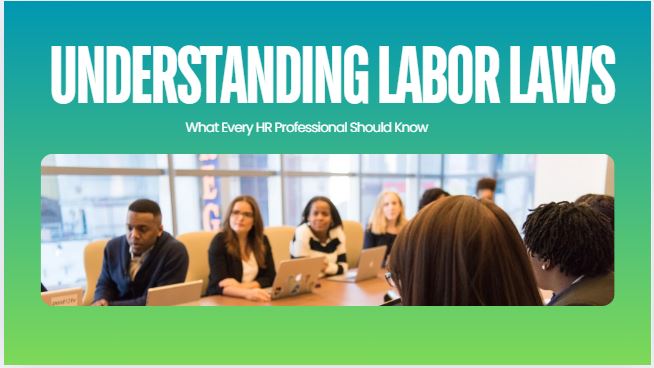
In today’s rapidly evolving workplace, a solid understanding of labor laws is no longer optional for HR professionals—it’s essential. Whether you’re managing a small team or an organization with thousands of employees, compliance with labor laws ensures smooth operations, employee satisfaction, and the avoidance of costly legal disputes.
For HR professionals pursuing advanced education, such as a PGDM in HR and Executive postgraduate diploma in HR management, mastering labor laws is a key component of building a successful career.
The Importance of Labor Laws for HR Professionals
Labor laws form the backbone of workplace policies and practices. They govern hiring, compensation, workplace safety, and employee rights.
HR professionals must have a thorough understanding of these regulations to:
- Protect employees from discrimination and unfair practices.
- Ensure organizational compliance to avoid fines and legal challenges.
- Build a positive and legally compliant workplace culture.
Programs like a postgraduate diploma in HR or executive human capital courses provide the foundation for understanding these legal frameworks and their application in the real world.
Key Labor Laws Every HR Professional Should Know
1. Employment Contracts and Conditions
Labor laws regulate employment agreements, including offer letters, non-compete clauses, and confidentiality agreements. HR professionals need to draft and review contracts that are legally binding and fair to both parties.
Advanced courses like a PG diploma in human resource management often include modules on contract law, ensuring that professionals are well-prepared for this responsibility.
2. Wages and Benefits
Understanding the rules surrounding minimum wages, overtime, and benefits is crucial. For instance, laws like the Payment of Wages Act and Minimum Wages Act in India ensure fair compensation practices.
Professionals pursuing a top PG diploma in human resource management gain valuable insights into designing competitive and compliant compensation packages.
3. Employee Rights and Anti-Discrimination Laws
Discrimination based on gender, caste, or disability is prohibited in most workplaces. HR professionals must ensure equality in recruitment, promotions, and pay.
By opting for the best PG diploma in human resource management, HR leaders can learn how to implement diversity, equity, and inclusion (DEI) practices effectively.
4. Workplace Health and Safety
Laws such as the Factories Act and Occupational Safety and Health Act (OSHA) set guidelines for maintaining workplace safety. Ensuring compliance with these laws protects both employees and the organization.
An executive human capital management course often emphasizes risk management, making HR professionals adept at creating safe working environments.
5. Termination and Severance
Handling layoffs or terminations requires compliance with labor laws regarding notice periods, severance pay, and grievance redressal. An Executive PG human capital management program equips professionals with the skills to navigate these sensitive situations while maintaining legal compliance.
How a PGDM in HR Can Help You Master Labor Laws
For aspiring and experienced HR professionals alike, pursuing a postgraduate diploma in HR management is an excellent way to deepen your knowledge of labor laws and their application.
Programs like the PGDM in HR offer:
- Comprehensive Curriculum: Covering legal frameworks, employee rights, and labor compliance.
- Real-World Applications: Case studies and practical examples to apply theoretical knowledge.
- Specialized Training: Advanced topics like executive compensation and workplace safety.
The Role of Certifications and Advanced Courses
Certifications like a PGDM in HR help HR professionals stay updated on the latest legal changes. They also enhance your ability to create policies that align with current labor laws, which is a critical skill for advancing your career.
Conclusion
Understanding labor laws is a cornerstone of effective human resource management. Whether you’re looking to upskill or pivot your career, enrolling in programs like a postgraduate diploma in HR will provide you with the expertise needed to navigate the complexities of labor laws confidently.
By mastering these regulations, HR professionals not only ensure compliance but also build trust and credibility within their organizations.


